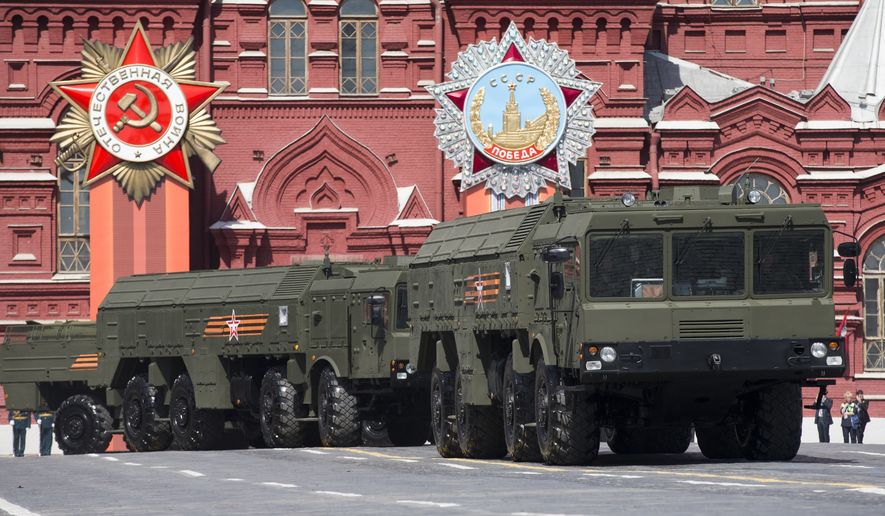ANALYSIS/OPINION:
The European Union’s impotence was on full display at last week’s European Council summit. Despite new Russian atrocities in Syria, the EU failed to take further punitive measures against Moscow, choosing instead to issue bland language condemning the attacks.
In the run-up to the summit, Russia once again deployed nuclear-capable Iskander missiles to its enclave of Kaliningrad, which borders Lithuania and Poland. From there, the missiles can strike as far as Berlin. Meanwhile, Russian warplanes continue to violate European airspace, even as Moscow ramps up its cyberattacks and espionage.
In Ukraine, Russia annexed Crimea and continues to propagate war in the Donbas, ignoring the Minsk II cease-fire agreement, funneling troops, money and weapons to a war that has claimed nearly 10,000 lives. In Syria, Russia has ignored cease-fires and ruthlessly targeted civilians on the ground.
And even as the European Council summit meeting was taking place, the Russian navy sailed an eight-vessel assemblage through the English Channel. The Russian ships were headed to the eastern Mediterranean, where they will continue to bomb the Assad regime’s enemies into submission.
Russia’s will in Syria is ruthlessly enforced; Vladimir Putin’s regime has exhibited an immense lack of regard for civilian deaths and developed a predatory penchant for targeting hospitals in Aleppo. The Russian strongman cares even less about Western governments’ words of disapproval over these actions, no doubt reveling in their shock and continued impotence to stem the slaughter.
While nations such as Estonia, France, Germany and the United Kingdom pushed for a strong response to Russia over its brutality in Aleppo, Greece, Hungary, Italy and Slovakia reportedly blocked stronger measures, including travel bans on Russian generals and economic sanctions aimed at the Kremlin.
At the summit, EU appeasement was on full display. Even the language condemning Russia’s targeting of civilians in Syria included in the official conclusions document was watered down. The final document meekly stated that “The EU is considering all available options, should the current atrocities continue.” No doubt the current atrocities will continue and the EU will endlessly consider its options without ever choosing to act on one.
The reasons for this appeasement are financial. Many EU countries have strong economies ties to Russia or remain dependent on Russia’s energy exports. Italian Prime Minister Matteo Renzi explained his nation’s opposition to further sanctions by saying, “If we want to speak with Russia, then we have to leave the door open.” He no doubt means an opening for Italian and Russian trade to pass through.
In too many European nations, when it comes to Russia, money talks. Large French and German retailers skirt existing EU sanctions against Russia by using subsidiaries to sell products in occupied Crimea. Spanish ports continue to resupply the Russian navy, the same ships that occupy Crimea and bomb civilians in Syria.
In addition to the EU’s appeasement of Russia, the summit produced another failure. The long-anticipated Comprehensive Economic and Trade Agreement between the EU and Canada fell apart over objections from the regional government in Wallonia, Belgium. What was expected to be the centerpiece of the summit instead became an embarrassment.
Chrystia Freeland, Canada’s minister of international trade, said that the “European Union is not now capable of having an international accord.” Ms. Freeland is right. The CETA collapse underscores how hard it is for the EU to reach consensus and how wise the Brexit vote was. Freed from the shackles of the EU, the U.K. will be free to take a stronger line against Russia and once again sign its own trade deals.
Last week’s summit followed a predictable pattern of impotence and appeasement that explains, in part, why British voters chose to leave. For the EU, consensus going moving forward will remain difficult to find.
• Daniel Kochis is a policy analyst specializing in European affairs for the Heritage Foundation’s Davis Institute for National Security and Foreign Policy.




Please read our comment policy before commenting.